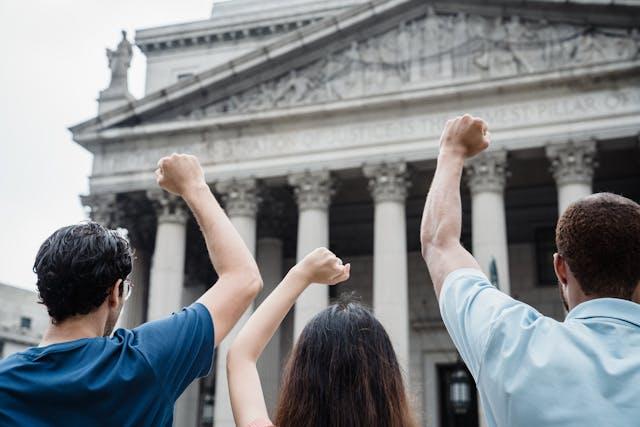The U.S. Supreme Court announced on Thursday, April 17, that it will hear oral arguments regarding President Donald Trump’s plan to end automatic birthright citizenship—one of the current administration’s latest efforts to crack down on immigration.
The announcement followed the Trump administration’s attempt to challenge three injunctions, wherein federal judges in Washington state, Massachusetts and Maryland attempted to override the president’s order for federal agencies to overlook the citizenship status of those with birthright citizenship.
In response to SCOTUS’s plan to hear arguments, Trump told reporters that he is “so happy” and, “I think the case has been so misunderstood.”
Birthright citizenship allows anyone born in the U.S. to automatically become a U.S. citizen, a mandate that applies to children of undocumented immigrants, tourists or those with temporary visas. The practice has been in place for decades.
On Sunday, April 13, Trump told the hosts of “Meet the Press” that he “absolutely” wants to end birthright citizenship altogether “because it’s ridiculous.” Opponents of birthright citizenship argue that birthright citizenship encourages “birth tourism,” which involves pregnant women entering the U.S. illegally to give birth to U.S. citizens.
Trump signed the order on his first day in office, and it was to take effect starting Feb. 19, but multiple federal judges have blocked the order.
Back in January, 22 state attorneys general—as well as dozens of immigrant rights groups—argued that the order to end birthright citizenship violates the Fourteenth Amendment in the U.S. Constitution, which states that all “persons born or naturalized in the United States, and subject to the jurisdiction thereof, are citizens of the United States and of the state wherein they reside.”
It also stated, “No State shall make or enforce any law which shall abridge the privileges or immunities of citizens of the United States.” The Trump administration argues that the amendment—ratified in 1868 after the Civil War and assured citizenship to all regardless of race—didn’t apply to everyone.
However, the 22 state attorneys general filed lawsuits against the administration, including California Attorney General Rob Bonta, who in a statement in January referenced the 1898 case of Wong Kim Ark, a Chinese American born in California who was denied re-entry into the country after a trip abroad.
“The President’s executive order attempting to rescind birthright citizenship is blatantly unconstitutional and quite frankly, un-American,” said Bonta, who is of Filipino American descent. “As home of Wong Kim Ark, a San Francisco native who fought–successfully–to have his U.S. citizenship recognized, California condemns the President’s attempts to erase history and ignore 125 years of Supreme Court precedent.”






